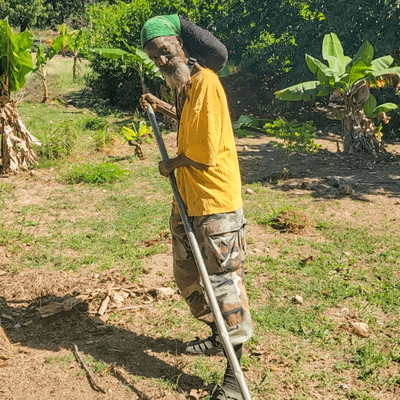Two Very Different Islands Grapple with Growing Crops in the Age of Climate Change
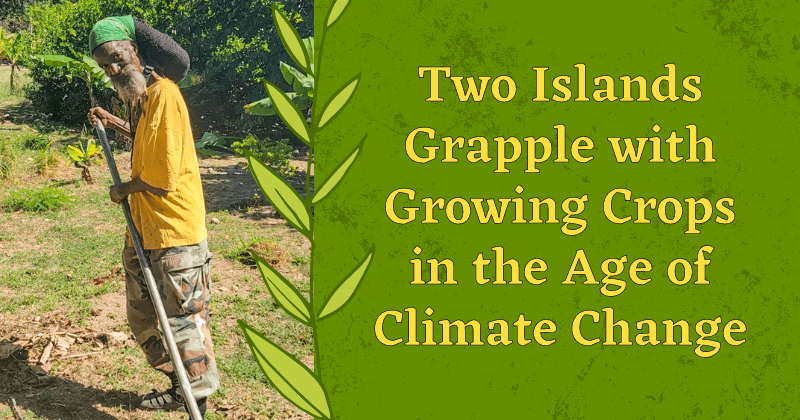
The distance between St. Croix, one of the US Virgin Islands, and Puerto Rico is less than an hour by flight, and yet the agriculture on the two Caribbean islands are worlds away. In Puerto Rico, large banana and coffee farms are tended to by agricultural workers including H-2A workers. Because of the island’s large size, farms can be extremely remote and isolated, hours from the main city of San Juan. Just southeast of Puerto Rico, the tiny island of St. Croix has numerous small-holder farms of one to two acres, largely owned by the Department of Agriculture and tended to by individual farmers who rent the land. Despite their differences, the two islands share the same fate: climate change is rapidly becoming a reality, with each year’s crops threatened by climate pressures like extended droughts and stronger hurricanes.
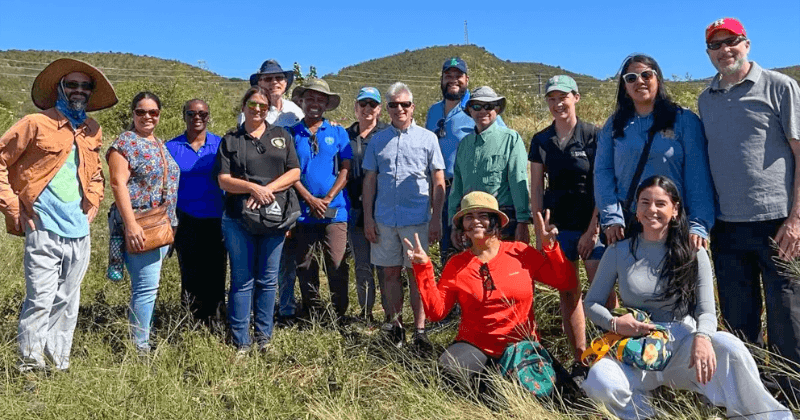
MCN staff are joined by colleagues from the US Virgin Islands, Puerto Rico, New Jersey, North Carolina and Michigan as they explore pest management and safety practices.
Last week, MCN’s Marysel Pagán Santana, DrPH, MS, Myrellis Muñiz-Márquez, MPH, and Nicole Torres hopped from Puerto Rico to St. Croix to join Amy K. Liebman, MPA, MA on an exciting exploration of St. Croix agriculture and the pest management employed there by its farmers. Amy Dreves, PhD, with the University of Virgin Islands, arranged visits to four diverse farms; some grew annuals like cucumbers, sweet potatoes, and lettuce, while others tended to perennials like pomegranates, passion fruit, and bananas. The MCN team was joined by colleagues with expertise in pesticide safety, integrated pest management, and worker protection from Puerto Rico, North Carolina, New Jersey, and Michigan as part of a collaborative project that fosters the exchange of resources and strategies to support farmers and workers. The tour started with a visit to a woman-operated farm run by Claritta Montoutte. She shared many of the challenges she faces, from limited labor to pest management. From there, the team visited ARTfarm, run by Luca and Christina Gasperi. This farm, once a cattle farm operated by Luca’s father, is now supplying local restaurants with sustainably grown produce. The tour continued to Grantley’s Farm where Grantley Samuel noted some of the concerns he had with his cucumbers, challenges marketing some of his produce, and the rush to finish the harvest before the rainy season starts. The day finished with a stop at IBO Farm filled with fruit trees and specialty crops along with hardships caused by the drought.
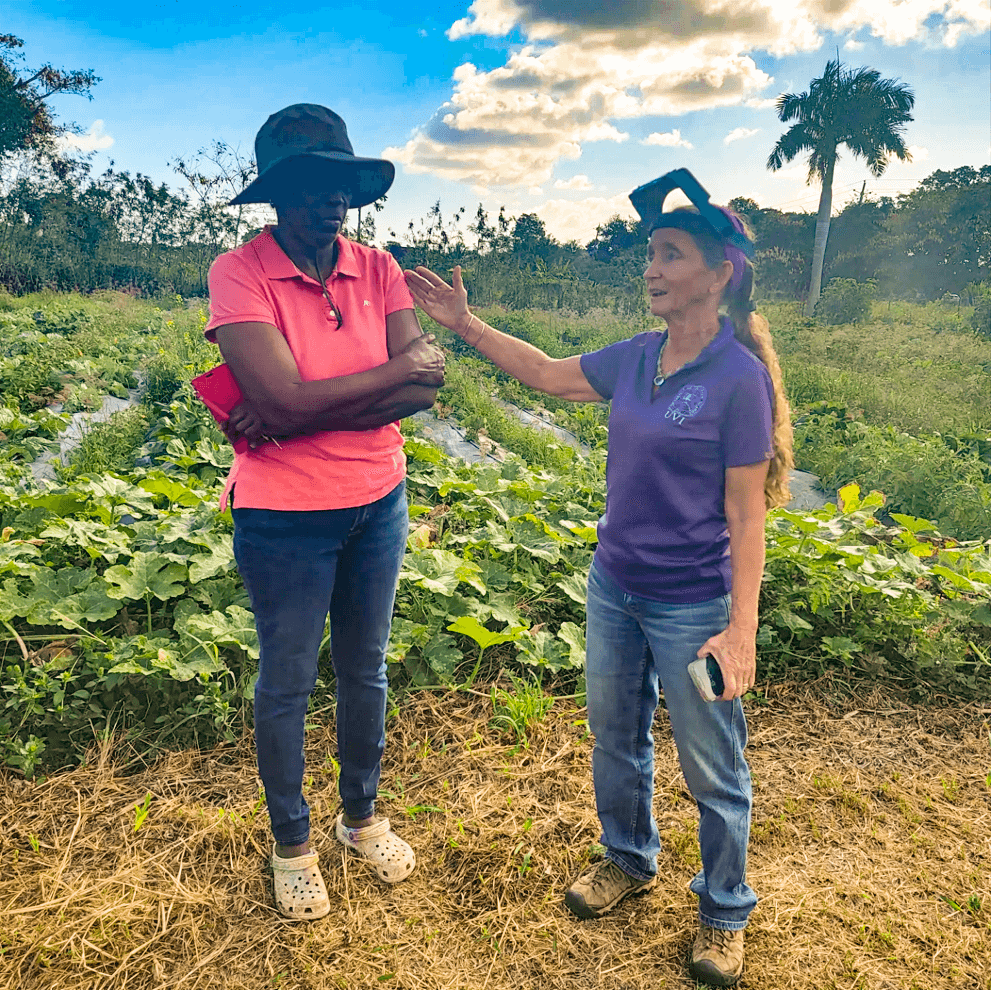
Amy Dreves, PhD, talks to Claritta Montoutte.
“The thing that came up in all of conversations with the farmers was climate change. Each farmer talked about what they had ‘before Maria’ and ‘after Maria.’” Liebman said. The farmers were unanimous in their insistence that their soil and crops have yet to recover from the 2017 category 5 hurricane.
“They were talking about how the soil is almost there, almost recovering, but now they’re dealing with a drought,” Pagan Santana added. To retain moisture, one farmer had turned to permaculture techniques, installing hügelkultur beds, a technique in which logs are buried beneath the soil. Others were experimenting with above-ground ponds and other water retention strategies. “All were very aware of the impact that climate change was having, from hurricanes to the drought, that water is scare, and that they need to try to adapt to this changing climate,” Muñiz-Márquez noted.
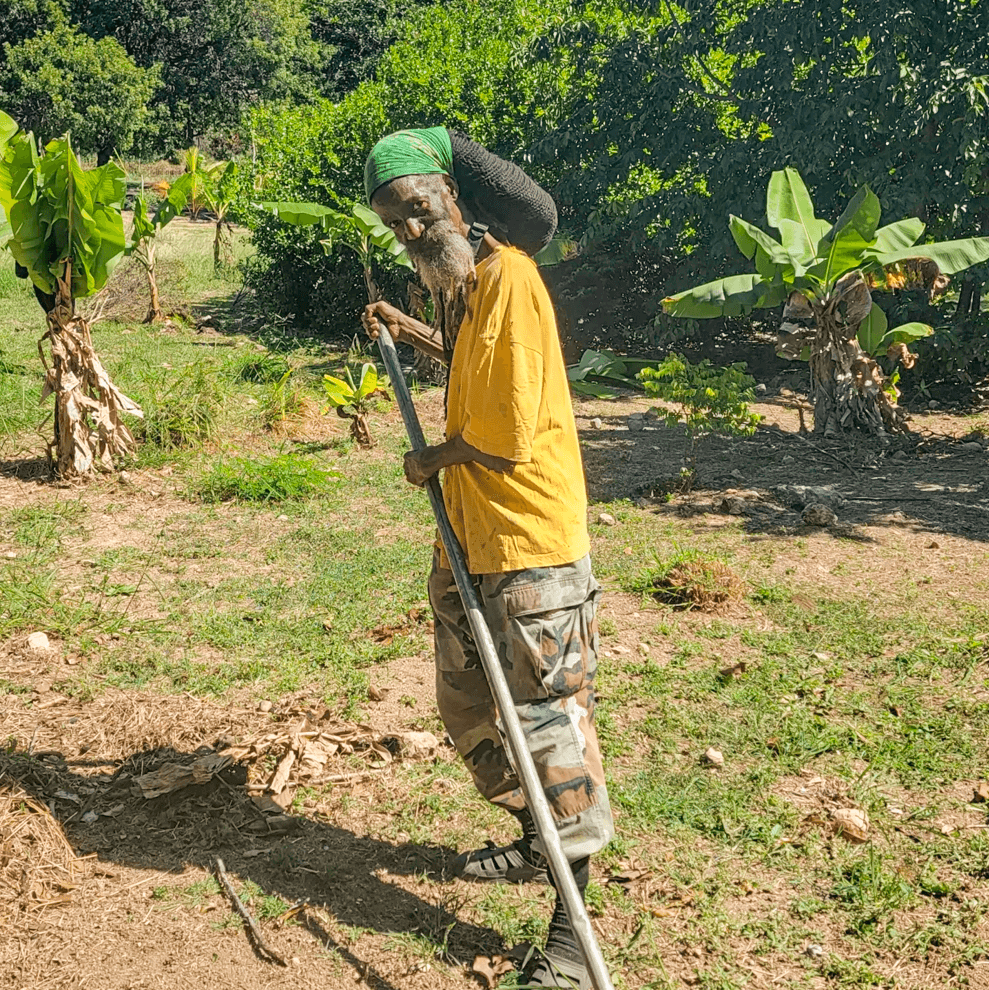
Untunga talked to us about the challenges of farming during a drought.
“The massive changes to the soil, the drought, and the hurricanes themselves all change pest behavior and abundance,” noted Liebman. “These may affect how the farmers approach pest management, including their use of pesticides.” Further, extreme heat and other climate extremes may impact the effectiveness of pesticides.
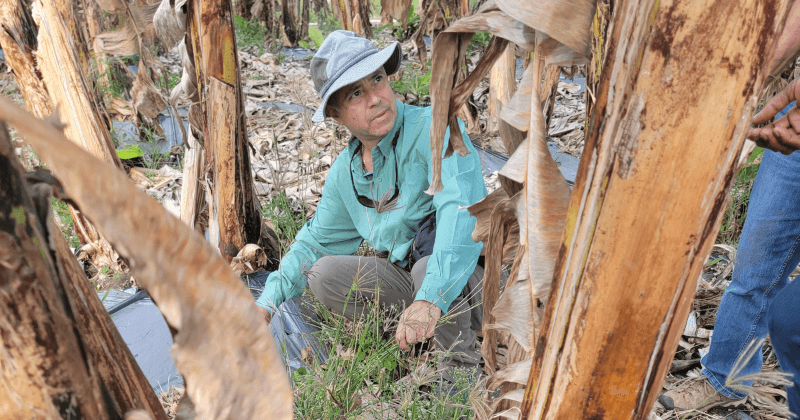
Raul Perez, PhD, talks about the best practices for locating plastic sheeting when growing bananas.
Back in Puerto Rico, where MCN’s office has been highly active in supporting agricultural communities’ health, farmers and farmworkers are encountering the same climate change pressures, so MCN is partnering with agricultural and pesticide safety specialists in the Virgin Islands and Puerto Rico to collaborate on pesticide management and safety resources and trainings, and ensure that best practices are shared across the islands, while keeping cultural and linguistic differences top of mind. This effort is supported by the US Environmental Protection Agency through a partnership with Michigan State University.
“There’s a lot of work to be done,” admitted Pagán Santana. “There aren’t many worker complaints in St. Croix – but it’s unclear whether workers aren’t getting exposed to pesticides, or if the structure and education aren’t in place for workers to make those complaints. Additionally, we need to adapt resources, get to the root cause of what’s going on in pesticide management, so that farms can be successful, despite the significant challenges of climate change that they are facing.”
Visit MCN’s new Climate Justice page to learn more about our work in Puerto Rico and beyond: https://www.migrantclinician.org/climate-justice
- Log in to post comments

